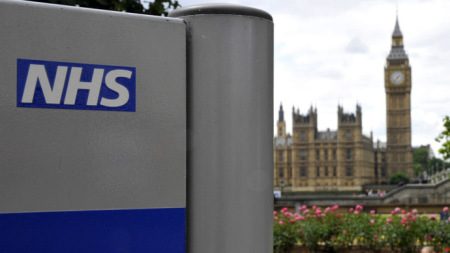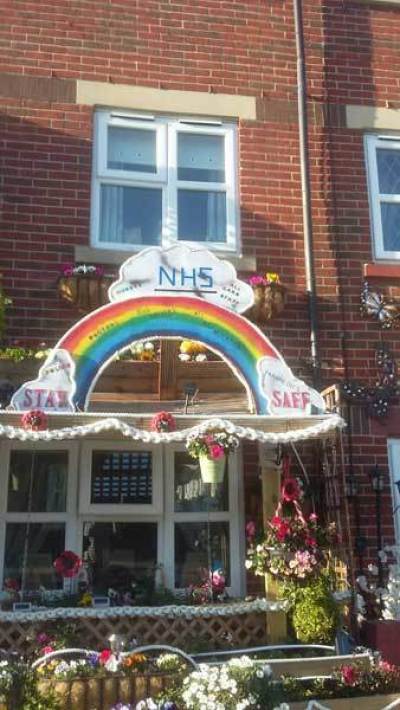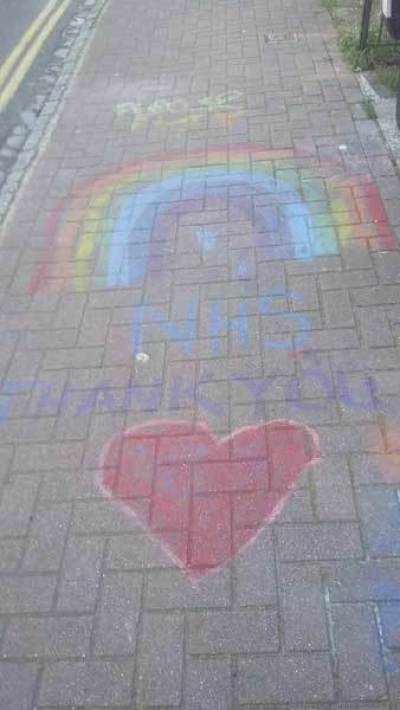Britain's NHS: A socialist-style cult worship?

At a time when health-care policy continues to loom large as an election issue in the
US, it would be all too easy for some Americans to look wistfully across the pond at
one of the most prominent alternative models to their own – Britain's National Health
System.
Judging from the events of recent months, however, a better paradigm would be that
of Germany – whose BMG has once again stunned the world with the Hansel-and- Gretel magic of Teutonic management. Although at present it is not wise to take any
circulated statistics at face value, by all accounts Germany's COVID-19 per-pop deathrate is multiple-times lower than the UK's.
Failure
In the broadest framework, logically it must be that the NHS has failed in at least one
of what are the only two overall defining-possibilities.
Firstly, as one of the largest, richest and most centralized health systems in the world,
the NHS should have been well-placed to foresee and plan for any such emergency as
the COVID-19 outbreak. Its centralized state organization gives it access to various
governmental departments; and its public presence is so much greater than that, say,
of an isolated scientist working for a rural hospital in a third-world country.
Yet Britain proved ill-prepared. In both senses of the expression, it was sitting pretty.
Further, in the UK, any criticism of the NHS is met with incredulous and affronted
disavowal. In Britain's media, the National Health System is depicted as a 'victim' of
China's alleged wrong-doing.
The second overall possibility is that the pandemic is not as severe as the media has
led many people to believe – and thus it was not the case that the NHS proved unequal
to dealing with the crisis. Yet, by that hypothesis, has the NHS allowed, urged and
even collaborated with a manipulation of statistics by the media?
Britain's tabloids often boast of some oldster 1980s half-celebrity who has died 'after'
contracting COVID-19. But there is little clarity on whether the death is a result of the
disease itself, or whether he or she simply had recovered from COVID-19 six weeks
previously – but the defeated virus still showed present upon testing.
Of course, the NHS will claim that its problem is underfunding. Yet the UK is
relatively rich: a G7 member. While British citizens are able to opt for private
schemes such as BUPA, within the state apparatus the NHS is something of a
monolith. It is a big and powerful player.
According to the online King's Fund, government funding for the UK Department of
Health and Social Care has risen on average by 3.7% a year since the founding of the
NHS. The previously planned budget for this year was a hefty 140.4 billion Pounds.
By contrast, the online Institute for Fiscal Studies records that, between 1980 and
today, Britain's armed forces lost half of their former slice of the overall UK
budgetary pie.
Indeed, a cynic would question whether some health professionals in the UK might
fuel a politicization of events in order to big up the NHS's claim on national finances.
At the local level, hospitals could be budget-bidding against each other for allocation
of resources; and individual staff might seek to justify emergency overtime-payments
even when the outbreak was not severe in their region.
What is Unique to the UK's Experience
Even if all the above were true, though, Britain's health-care system would not be
much more culpable than that of any other richer industrial nation. What makes the
UK unique is a strange and perverse rush to a type of hero-worshipping of the NHS:
one that demonstrates several features common to Communist states.
To begin with, as said, there is the neurotic absence of open discussion as to whether
the NHS has failed in a way that possibly makes it at all blameworthy.
Similarly, Britain's media is ever keen to support the idea of increased public spending for the UK's Department of Health. Very rarely does public debate focus on
where that funding should stop – or whether the NHS might be already be overfunded. There is almost no discussion of optimum scales, or of disequilibrium, just as
back in Communist Russia a national press often supported the financial claims of the
bloated Soviet military-establishment.
There is also a misappropriation of language. Nurses are termed as 'NHS heroes', said
in a schwartzy, accusatorial tone of insistent certainty, as though nothing in the world
is of a higher ideal than is the Welfare State. Some supermarket chains now offer 10%
discount to NHS staff, even to non-medical personnel. This political-think is
reinforced throughout on digital billboards, governmental TV-infomercials, and upabove piped-warnings.
Meanwhile, any public figure who is feeling low in celebrity status can claim
victimhood by 'coming out' with the virus – soon to recover. Prince Charles, Nadine
Dorries (the Junior Health Minister), and Bojo himself are self-dramatizing examples.

A perhaps more shocking element is that quintessential Communist strategy of
enticing children into the self-righteous cult. Practically every other house-window in
the UK now is festooned by a child's crayon drawing of a colorful rainbow – with
words such as 'Thank you NHS' clumsily chunk-typed underneath. Children's
pavement art of rainbow colors so bedecks many a sidewalk.
On seeing an approaching adult, some parents will order their children aside as though
to demonstrate revulsion. Another Stasi-like instrument is that neighbors can snitch on
or personally confront those not deemed to be sufficiently following social-distancing
rules.
The element of a communal ritual, meanwhile, is manifest in mass participatory
'clapping'. On certain evenings, at a designated hour, all UK citizens are invited to
step out of their homes and into the street, there to clap their hands enthusiastically in
order to show solidarity for the NHS. Millions do so.

Shelter-in-place is itself reminiscent of a political curfew. The difference between the
UK and the US is that Trump and Middle-America have been able to see the dangers
of this potential repression. Many American commentators have questioned the
predictive models that originated in London, such as the Imperial College graphs.
Perhaps the apotheosis of the cult was the UK's Easter Sunday headline: 'The NHS
has saved our Boris'. All the wording of a warped religion is there evident. Meantime,
churches are shut for organized worship, again without any US-style dissension. Of
note too is that England has a history of a state (Anglican) religion.
Negative Consequences for the NHS itself
With the consequential crash in Britain's economy, it is only a matter of time before
the NHS must actually stand to have its finances downsized. In addition, with
headlines such as the Daily Mail's threat of a 'reckoning' for Beijing, there could be
further budget-cutting repercussions – owing to negative changes in international
trade and defense policing.
Similarly, there is the 'moral hazard' of an established culture of self-certificating at
home on sick-pay. Hypochondriacs and scrimshankers will be emboldened as
goldbricks. Those who become ill through self-neglect, carelessness and overindulgence will see opportunity to thrive on the resources that should be reserved for the genuinely sick.
For those people who do suffer from a serious illness, and are therefore labeled as
vulnerable, being forced into prolonged quarantine and heightened social-isolation
might add to psychosomatic stressors. Safety directives can see older folk with
underlying health-issues now almost cordoned off after the manner of medieval
lepers. Such a negative disorientation from regular human interaction can lead to
depression – and an anxious tendency to slip up in any self-administration of medical
safeguards. As they might express it in Grandpa's lay terms: 'all this fuss is enough to
make anyone ill.'
More immediately, the NHS's inattention to regulate which, when and how many
medical staff should wear protective clothing now means there are shortages in PPE
and respiratory equipment. If a second and more serious pandemic were to follow
soon, the UK would be left compromised.
Let's hope the NHS hasn't cried wolf.
Jon Lee Jr is the author of ENGLAND's RISE and DECLINE: and What it Means,Today, available on Amazon.com. He is a consultant for the British Council, workingbetween his home country the UK, and Beijing.





















